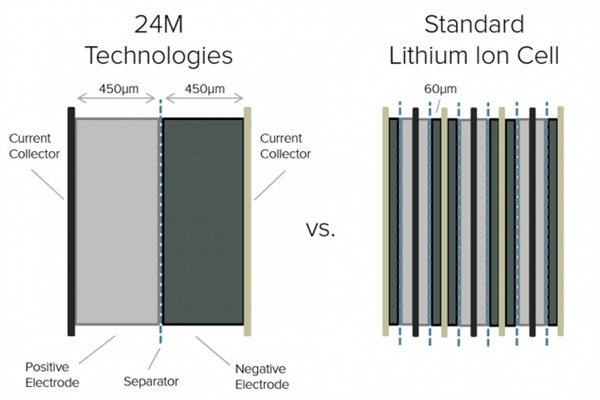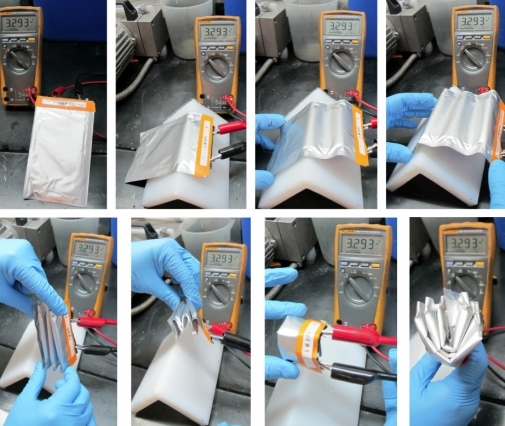Researchers at the Massachusetts Institute of Technology in collaboration with a spin-off company called 24M have recently developed an advanced process for manufacturing lithium-ion batteries that not only promises to significantly reduce production costs but also improve battery performance, making it easier to recycle. Existing lithium-ion battery manufacturing methods were invented 20 years ago, and the efficiency is low and the process is cumbersome. Professor Just-Ming Chiang, a professor of ceramics technology at MIT, a co-founder of 24M, and one of the former founders of A123 Battery Co., Ltd., and colleagues proposed the concept of "flow battery" five years ago. A suspension of fine particles acts as an electrode and is circulated in the battery by means of pumping. However, the analysis shows that the flow battery system is suitable for low energy density batteries, which means increased costs for high energy density devices such as lithium-ion batteries. To this end, Jiang Yeming's team improved the design, the new version is called "semi-solid battery": the electrode material does not flow, it is a semi-solid colloidal suspension. According to the physicist's report, unlike the standard process, it is necessary to add a liquid coating on the substrate material, and then wait for the material to dry before starting the next process. The new method allows the electrode material to remain in a liquid state without drying at all. The system reduces the number of layers in traditional battery structures and the amount of non-functional materials by 80% by using fewer but thicker electrodes. Jiang Yeming said that the new process greatly simplifies the manufacturing process and the production cost can be reduced by half. The battery is flexible and more durable. It is not only bendable, foldable, but it is not damaged even if it is penetrated by bullets. This method can also scale up production, and he estimates that by 2020, the cost per kilowatt-hour capacity will fall below $100. Currently, 24M has already manufactured about 10,000 such batteries on the prototype production line, most of which are being tested by three industrial partners, including an oil company in Thailand and Japanese heavy equipment manufacturer IHI Co., Ltd. The new process has obtained 8 patents, and another 75 patents are under review.
The spunbond process is considered the fastest manufacturing method for nonwoven fabrics. As a result, spunbonding is considered to be more economical than other manufacturing methods such as needle punching staple fiber. During the spunbonding process extruded filaments are spun onto a collecting belt and bonded by applying heated rolls.
1. It reinforce old asphalt concrete road surface and asphalt layer, and prevents damage ;
2. It is used for rebuilding cement concrete road surface into composite road surface and restraining reflection caused by block contraction .
3. It is used in road expansion and improvment project and crack caused by old and new combination position and uneven sedimentation ;
4. It is used in soft soil base reinforcement treatment , is favorable for soft soil water separation and concretion,restrains sedimentation effectivly,distributes stress uniformly and improve overall strength of road base;
5. It is sued for preventing contraction crack caused by new road semi-rigid base layer,and reinforces and prevents road surface crack caused by foundation crack reflection.
Spunbond Nonwoven Fabric, Pp Spunbond Nonwoven Fabric, Pet Spunbond Nonwoven Fabric, Polyester Fiber Feicheng Lianyi Engineering Plastics Co., Ltd , https://www.lianyigeosynthetics.com

